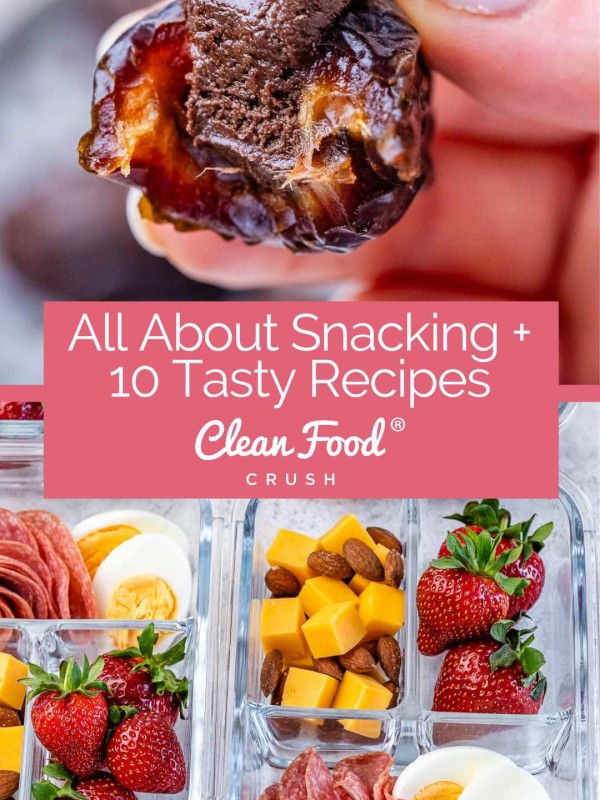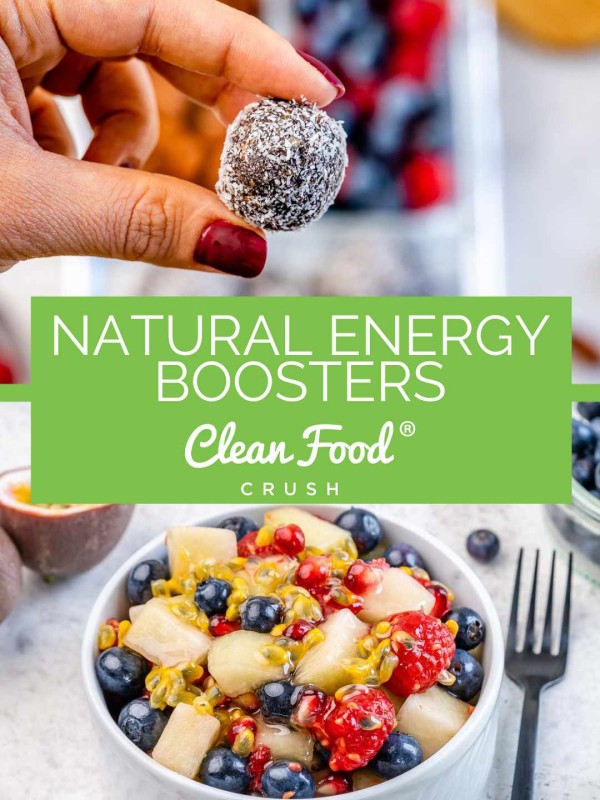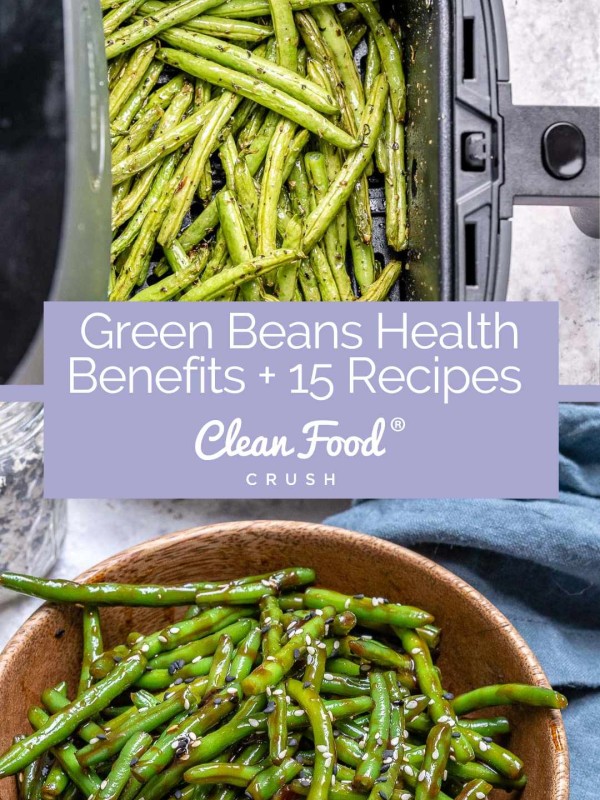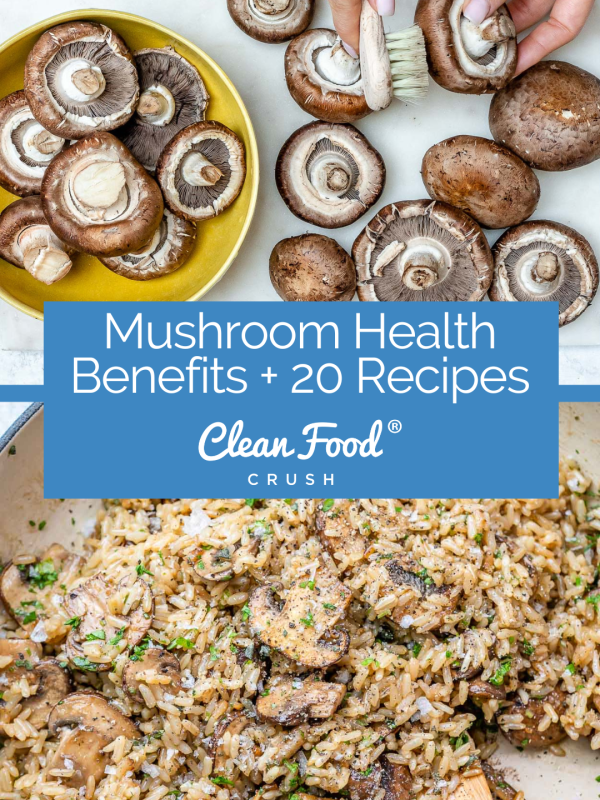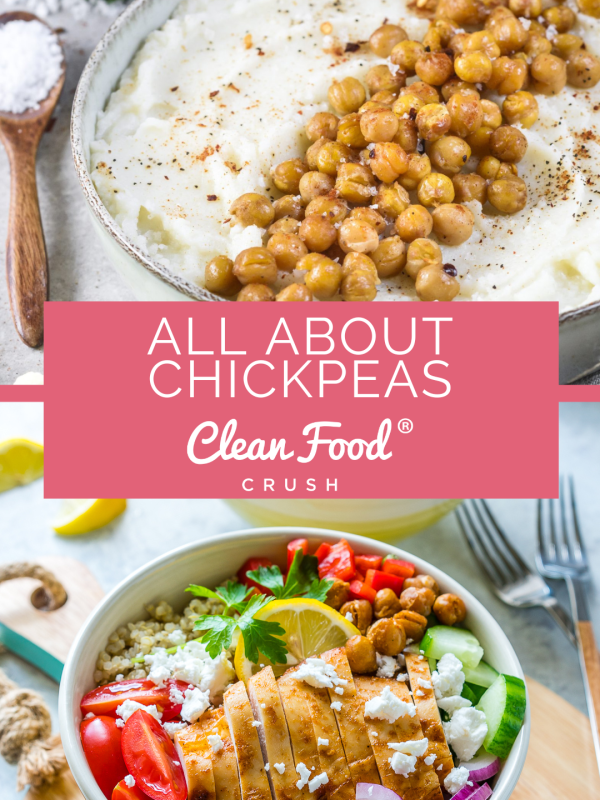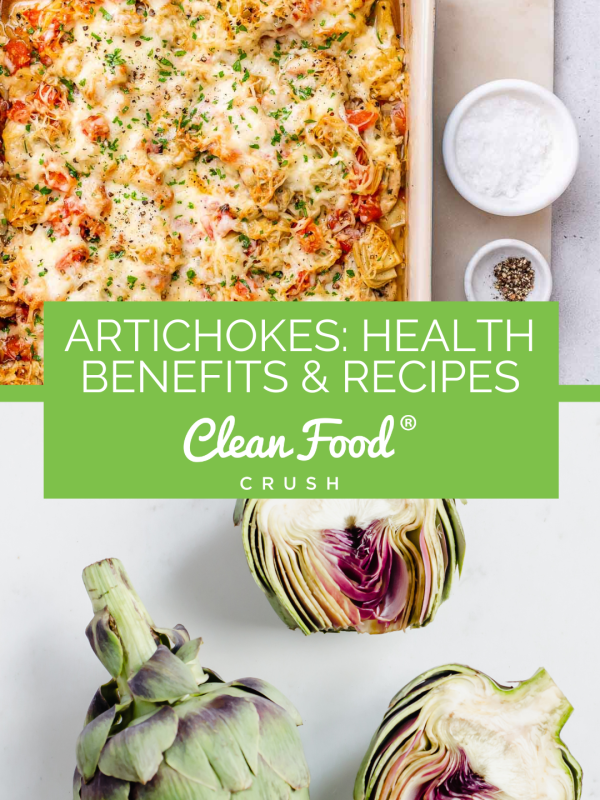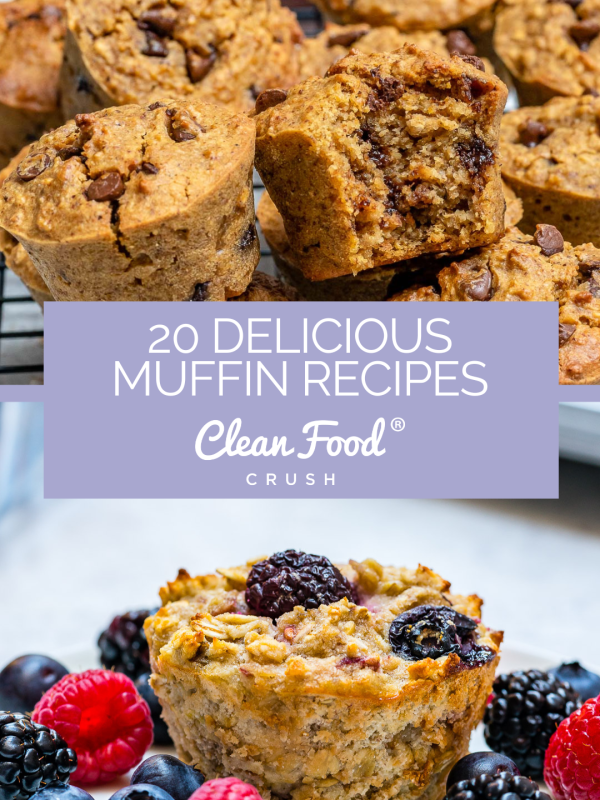This post contains affiliate links. Please see our disclosure policy.
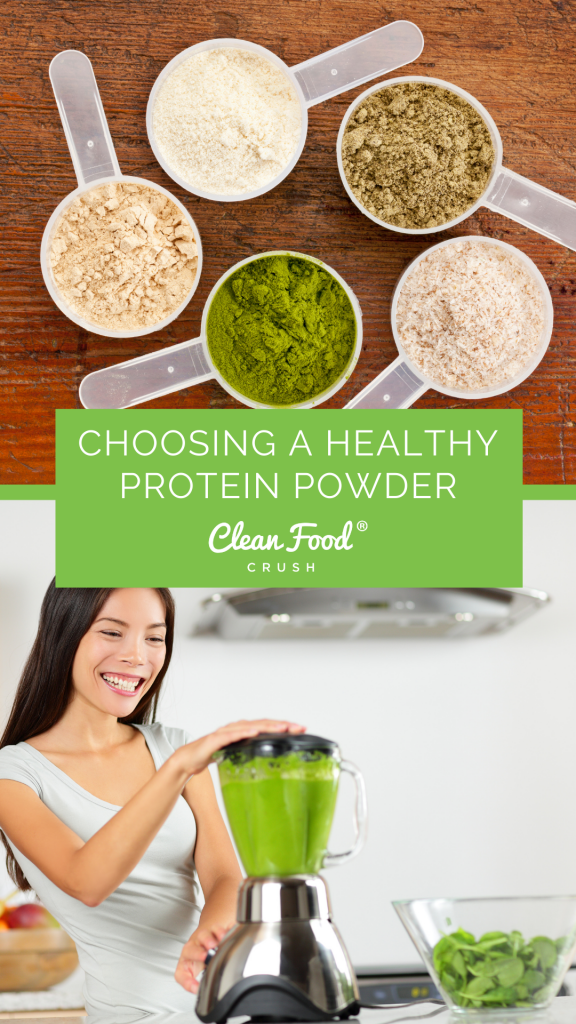
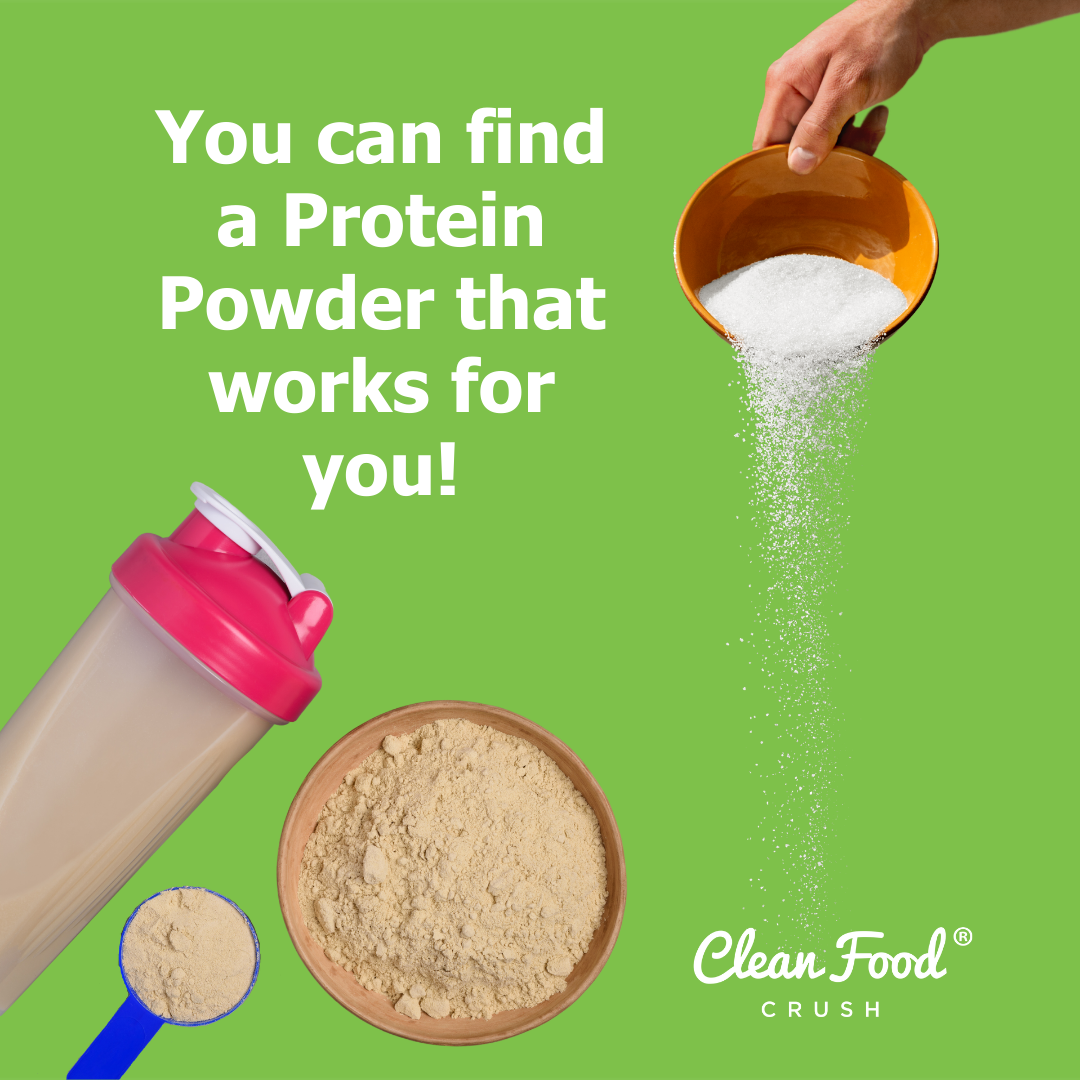
Tips for Choosing a Healthy Protein Powder
Anyone who has ever walked down the protein powder aisle of a grocery store has likely felt a little overwhelmed by all of the choices there are. Whether you’re someone who uses protein powder on a regular basis or are wondering if it is something you should incorporate into your diet, it’s important to understand what to look for when choosing a healthy product. We’re here to help break down the different types of protein powders and give you guidelines on choosing the right option for you.
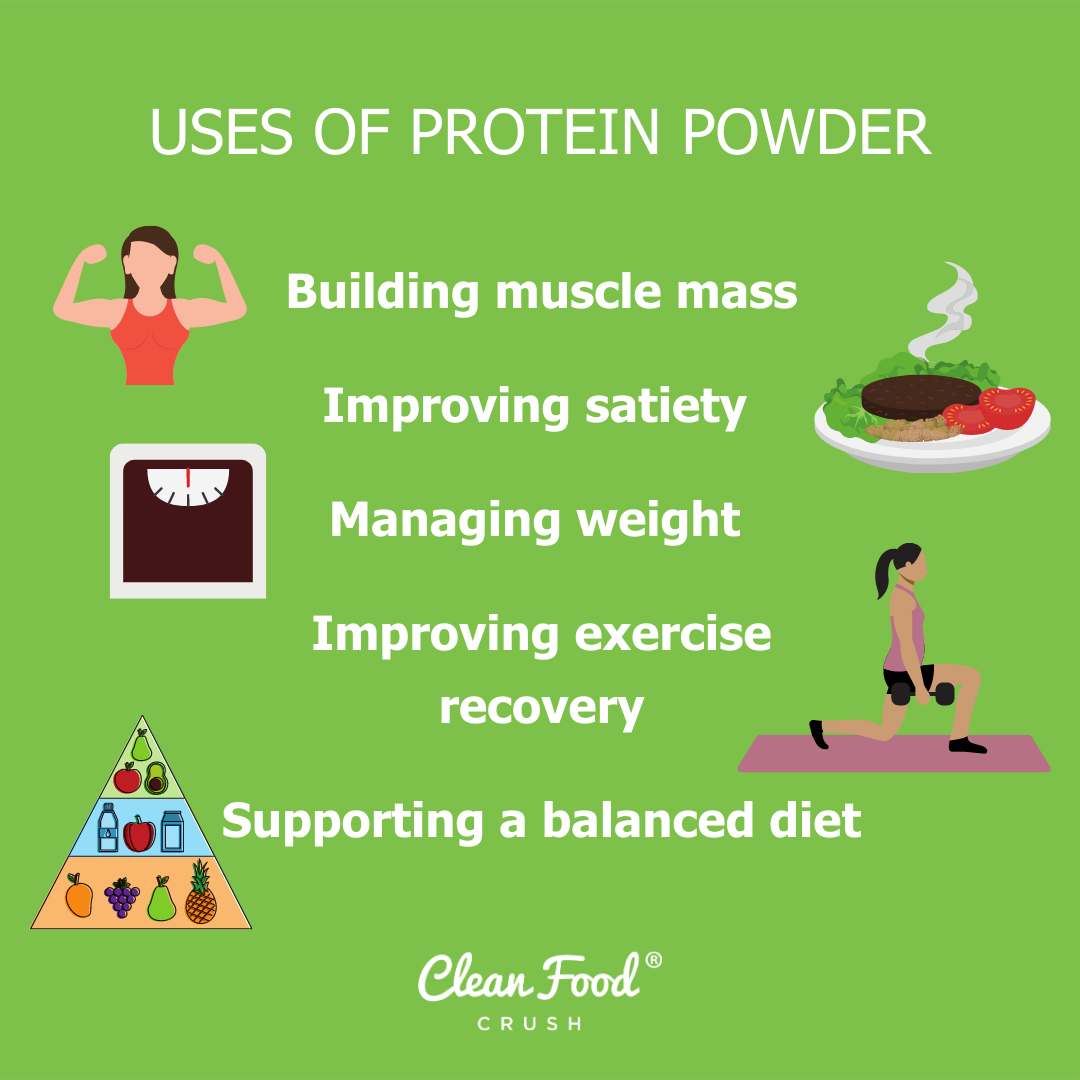
Reasons to Consider Using Protein Powder
While getting protein from whole food sources is always ideal, there are many instances where using a protein powder supplement can be helpful in achieving a healthy lifestyle and meeting your health goals. Protein powders are an easy and convenient way to help ensure your body receives balanced nutrition.
Protein powders can be used to achieve things like:
- Building muscle mass
- Improving exercise recovery
- Improving satiety
- Managing weight
- Supporting a balanced diet
Keep in mind that using protein powder is never required and that more protein isn’t always better. Some evidence shows that consuming about 20-25g of protein per meal is best for muscle growth and repair and that any more than that won’t be used by the body anyway. Therefore, if you’re already eating a meal or snack that contains adequate protein, there is no need to add more. Instead, protein powder use should be reserved for meals that might otherwise be low in protein and/or for times when a quick and easily digested form of protein is beneficial, such as after exercise.
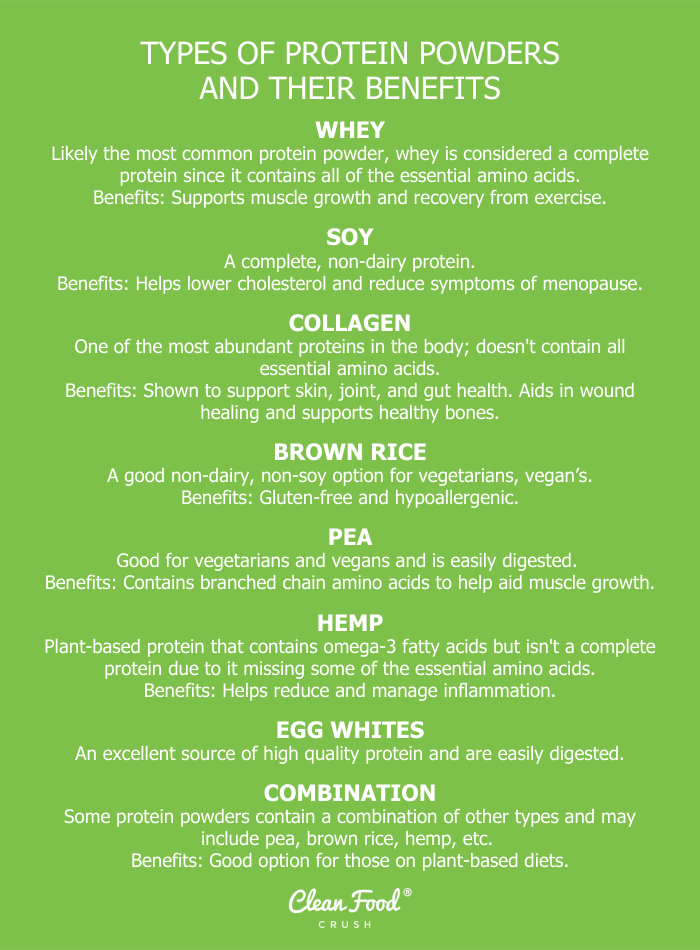
Types of Protein Powders and Their Benefits
Whether you are vegan, vegetarian, or have any allergies or food intolerances, there is a protein powder option for you.
Here are some of the different varieties and reasons to consider using each:
- Whey– whey is likely the most common form of protein powder, and is best in isolate form. Whey is considered a complete protein since it contains all of the essential amino acids, including branched-chain amino acids which are especially beneficial for supporting muscle growth and recovery from exercise. However, people with an intolerance, allergy or sensitivity to dairy should not consume whey protein.
- Soy– this is a good option for vegetarians, vegans, and those who cannot consume dairy. Soy is also a complete protein and has been linked to helping to lower cholesterol levels and reduce symptoms of menopause in women.
- Collagen– collagen is one of the most abundant proteins in the body and is shown to support skin, joint, and gut health as well as aid in wound healing and support healthy bones. You can read more about collagen in this post. Collagen peptides are a type of protein powder that is becoming more popular and are generally well tolerated. However, collagen does not contain all of the essential amino acids and should be avoided by those following vegetarian or vegan diets since it is made from animals.
- Brown rice– like soy, brown rice protein can be a good option for vegetarians, vegan’s, and those who may be sensitive to dairy or soy. It’s also gluten free and hypoallergenic.
- Pea– this is another protein option for vegetarians and vegans that is easily digested and has the benefit of containing branched chain amino acids to help aid muscle growth.
- Hemp– this is another type of plant-based protein. Hemp is unique in that it contains omega-3 fatty acids which help reduce and manage inflammation. However, it is not a complete protein due to it missing some of the essential amino acids.
- Egg white-Eggs are also an excellent source of high quality protein and are easily digested. This type of protein powder is suitable for vegetarians but not vegans.
- Combination-some protein powders contain a combination of other types and may include pea, brown rice, hemp, etc. These can be a good option for those on plant-based diets. However, some can contain higher amounts of carbohydrates compared to isolated versions.
No matter which type of protein you choose, it’s always a good idea to look for brands that use no additives, added sugars, artificial sweeteners and which are sourced from non GMO, organic and/or grass fed sources when applicable. This helps avoid exposure to pesticides and other contaminants that may be harmful to the body, and ensures the highest quality of protein.
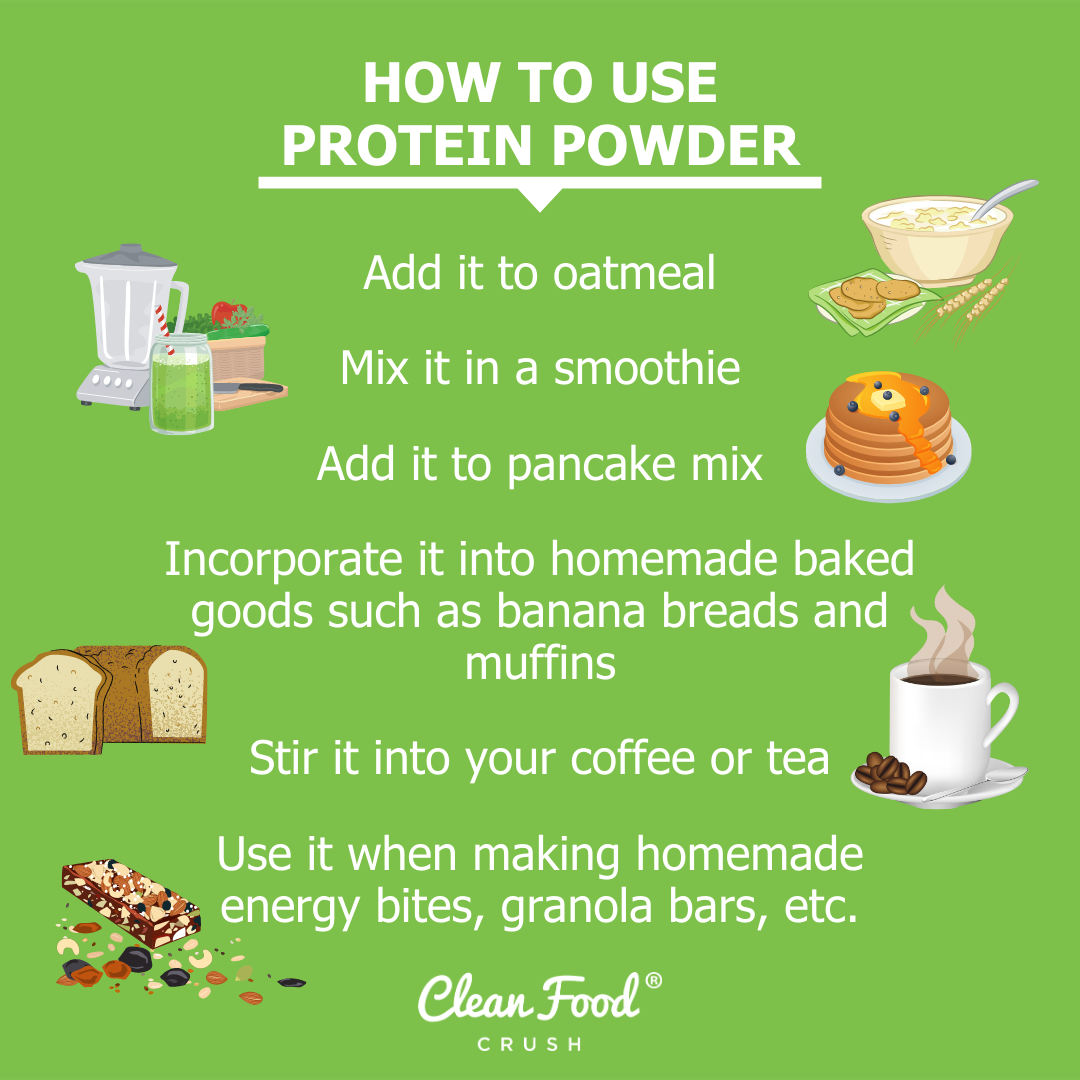
Tips for Using Protein Powders
Most people tend to think about bodybuilders or other intense athletes drinking protein shakes when they think about protein powder. Yet just about anyone can use and benefit from protein powder, and there are many other uses for them besides shakes. So even if the idea of adding a scoop of protein powder to a glass of milk doesn’t sound appealing to you, you can still find delicious ways to incorporate them into your diet.
Here are some ideas for using protein powder:
- Add it to oatmeal
- Mix it in a smoothie
- Add it to pancake mix
- Incorporate it into homemade baked goods such as banana bread, muffins, and more
- Stir it into your coffee or tea
- Use it when making homemade energy bites, granola bars, etc
Keep in mind that some protein powders may change the flavor and consistency of food slightly, so choose a flavor that is versatile and that you find appealing. Many brands also make unflavored varieties, which can also be a great way to enjoy the benefits of extra protein without changing the flavor. When it comes to how much to use, try to stick to the serving size or consider using slightly more or less powder depending on what you’re making in order to not alter the consistency of the end product too much.
SAVE 20% ON JAY ROBB PROTEIN POWDER
Here at CleanFoodCrush, we know how hard it can be to find a quality product that is simultaneously ✔️ healthy, ✔️tastes great has ✔️great texture. A few years back, we came across the Jay Robb brand of Protein Powders and so far, we’ve found nothing better. We love Jay Robb so much that we arranged for a 20% Discount Exclusively for CleanFoodCrush Members. Just click here and find a protein powder and you will receive the discount automatically. Don’t forget to let us know how you love it! ❤
In Summary
While getting enough protein from whole food sources is still very important, using protein powder can be an easy and convenient way to help make sure you’re meeting your protein needs and support a variety of other health goals. There are many different types, brands, and varieties to choose from as well as many ways to add it to your diet. Which type of protein powder you choose should be based on health goals, flavor and dietary preferences, and quality.







